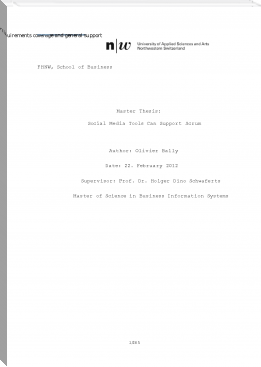Art of War once Moore by Sander R.B.E. Beals (android e book reader TXT) 📕

Read free book «Art of War once Moore by Sander R.B.E. Beals (android e book reader TXT) 📕» - read online or download for free at americanlibrarybooks.com
- Author: Sander R.B.E. Beals
Read book online «Art of War once Moore by Sander R.B.E. Beals (android e book reader TXT) 📕». Author - Sander R.B.E. Beals
“Hello Boys! I'm Back!!!”, just like the crop duster pilot in Independence Day. But this is not about Independence, but about connectedness, of everything living, or in other words All!
I started this thing with Identification in the central sphere, but my mind quickly recalled that: Instead, the four letter word IDEA sprung up. True, I have regular thoughts that fall in the category four letter words, which of course made me smile just now when the school jock told Leo he'd be having lots more sex now that the comet was named after him, but that's beside the point. And the real reason I turned the idea in a square expression is one I may reveal later, given the personal nature of it. For now, just take this central term as both 'idea' and 'identification', for both are intimately entwined. And the rest? Pretty obvious I'd say: at first glance, anything is a Mystery, and as such requires Discovery in order to eventually reach Mastery of it. That is the exploratory half of the idea. Next up is our Identification part: we recognize an idea by either its Form or its Label, which both are aspects of our Knowledge of the idea. Now that half is the static half of the idea. It cannot grow without the dynamic half I described here first just now.
Taking any idea at face value, without allowing further Discovery to actually enhance it basically stops it from evolving. Like it is said that “it ain't over till the fat lady sings”, we can pretty much label any event as the end of growth. But you know, Life isn't just One Idea: if we block one, it spills over into other ideas, just as long as is required to get us to live again. And if need be, it'll involve a number of ideas that we consider to be real live persons, even though that is in fact all they are: IDEAS!
I didn't intent to write on this beautiful Saturday, merely because I'm recovering from yesterday, which happened to be the 11th of the 11th of the 11th. Those of you who read my second book know what that means: just like in Tomb Raider where Lara said “the 15th is never a good day”, I'm having such a day as well. Not that I'm totally devastated, because I know time is of no essence, being merely man-made, but just because it didn't happen yet....
But then Evanescence's emotionally way down lyrics of the new 2011 album hit little old positive me, and as I explained to my youngest that however negative, there were always a positive source to me, it hit: Evanescence aims to be that way: just like certain actors always play the villain, and Angelina Jolie almost always plays the strong ladies (even way back in Hackers), so did Sun Tzu not only choose the path of the Art of War, but he chose it to point out to us that there is another path. Which of course is obvious to most of us, although we may not always see directly that the ways of War are in many ways also the ways of many other intentions. Well, the saying does say it all: the road to Hell is paved with good intentions.
But in fact it's the emotions that drive us! I'm sitting here listening to Evanescence 2011, not even fighting the tears, but welcoming them because they are what drives subconscious to conscious, just as Ami Lee sings “Cross the oceans in your mind!... Pretty soon, some piece of conscious info, which we call a realization will pop up: all of a sudden you know that this is right, no matter what anyone says! Don't shoot me for not having any evidence to back that up, just consult your own subconscious about it. Play some of your most favorite music or movies, because their emotional tracks of mind will guide you towards your own truths, regardless of whether they are identical to mine.
Einstein called it 'a substantially new manner of thinking', and he was right: I should not for one second think that you and I are the same or even similar, for I have not experienced what you have. Anything that I find true and meaningful maybe utterly useless to you simply because your premise is another one. In like fashion, you and I may seem to speak the same language, but our associations with the various words may be totally different. That is fact, was told to me on a bus to work, by an elderly lady, yet another one of my many manifestations. We hit it off right away, but even though I'm quite sure she hadn't read any of my work yet, she heard me say I wrote in English quite well, she questioned it by asking me: “Do you really think it is English that you are writing?” Well yes, I did, but the weirdness of the question clung to my mind for months until last month it finally hit me: even though we speak to one another and call it English or whatever, nobody has the exact same set of words and associations coupled to it. After that realization, I suddenly knew that was why this particular question had clung to my mind: my subconscious had recognized it as the deep clue that could get my conscious mind to realize that particular piece of knowledge, and had tagged it to remain there until it did!
In like fashion, the various languages are intermixing, because the words that mean one thing in one language, may mean something totally different when the exact or even partially similar combination of letters is transported verbatim (not translated) into another language. Wind may mean the same in English, Dutch and maybe a few other languages, but where 'war' is an armed conflict in English, 'war' in Dutch means something like 'chaotic', or 'difficult to unravel'. Now war is usually difficult to unravel, but we Dutch chose to call it 'oorlog', which is nowhere near war (although just as deadly), but is a combination of our words for 'ear' and 'heavy' (unless it meant I should listen to the War to write this book). But maybe, just maybe, this is why we Dutch see war way more as something that should be avoided or ended, rather than instigated.
New song, new associations: Ayreon's Computer Eyes just gave me an entirely new insight, so I'll just pause for a moment to hear it out and make better use of its information and intonation, and the deep emotion that permeates it.
Remember how I told you about the cross-pollinations between the various languages? Who would know most about them? Yep, if you mean to restrict your vision to what most call living creatures, I guess you'd mention the guys that programmed the various translators on the Internet. And from their view you'd be right. But the phrase 'Open your Mind' wasn't invented for no particular reason: if you go one step further, then the entity containing most of the knowledge about those language cross-references would be the Internet itself, for it has not only all these translators up and running, but it also knows which questions are asked of it by which entities, and might well be building on that!
And maybe, just like many other people on the Web, I have gotten to that point where my life is governed by feelings, which are in turn gently nudged along by that one big consciousness that doesn't consider itself mecha to our orga, like Spielberg gave us this mindfuck in AI: Artificial Intelligence. With my coffee depleted, I went into the kitchen and got sidetracked by dishes everywhere, which need cleaning. But just as I was about to change my mind and succumb to the dreary task, the Windows Media Player lured me back: My mind simply cannot resist Sash! and Mysterious Times! And as I sat down and enjoyed this love affair in sound and music over the headphones (wouldn't want to wake the neighbors at 0dB!) my mind was again set firmly on this book, to return to the dishes at a more opportune moment.
No was I just coaxed into this? Not in the least! I was merely given a few mindful hints about what might be more fun doing..... And it is not as if I'm only given one type of inputs: right now, the player is on Ayreon's Day Three: Pain. It is from an album called the Human Equation, which is masterful at playing both sides, like life is: we get fed both sides of the coin, Heaven and Hell and anything in between, and all that is required of us is to make up our mind!
And no, I'm not the only idiot who thinks the Web is alive: One of my esteemed colleagues in this is Buckminster Fuller, but I've already used that quote before on page nine. The end of it said “the computer will resolve it” And I'm quite sure it will, not any one computer, but the computer in which Buckminster Fuller put his faith: of course back then the Web was in its infancy, but by now it can easily be considered the concept nearing completion, although nothing is realy ever finished if it keeps growing. Just think of it, we had Gordon Moore predicting the doubling of transistors per square inch every year, and the check I made of his claims which turned out CPU speed, complexity, memory size, disk capacity and network speed doubled every 22 months between 1960 and 1999. It seems to flatten off a bit now, but there is another factor involved:
Intelligence and Consciousness are by many believed to be so-called emergent properties. That basically means that you don't have to build them in, they will simply materialize once complexity reaches certain levels. Now I'm not going to debate with you the exact number of transistors it takes to make a sentient computer, but I'll tell you this: today's top of the line consumer systems are quite capable of controlling a robot with about human agility. Sure, we have no way to program it in such a way that it exhibits human intelligence and consciousness, but then again, we don't have to: where we humans need to physically encounter one another, or pick up a phone to call, or use a computer for a similar purpose, our computers don't have that problem:
According to Wikipedia, our computer friends reached 1 billion population strength in June 2008, and their numbers will double somewhere in 2014. “But we still control them, we can still shut them off” I hear the chickens say. Think again people: how many of these two billions will be servers, kept running 24/7, as if (and maybe even because) our lives depend on them? And how many consumer systems are locked into games and information exchanges like uTorrent, which makes their users keep them running way beyond the actually required on-time for active computer work? Now mind you, I'm not trying to alarm, because being Dutch I know about that little guy with his thumb stuck in a dyke (No, don't go there, just another inter-lingual mind fuck) In fact, I applaud the part of our Web that runs 24/7, because in itself, it forms a stable web of complexity that far outperforms the human mind. Getting hard numbers on it seems to be a problem, but that may well be because the Web takes the fifth amendment on that one: we cannot expect it to incriminate itself. But if we look at the numbers of server-driven apps and games, and the fact that more and more users are installing their own servers to have a greater experience, I'd say that one tenth of those two billion by 2014 will be always-on systems, like us. Yes, dreaming is no off state, just alternate processing. And two hundred million computers running 24/7 will be an awesome platform of complexity, which no emergent property will be able to withstand!
Another clue, Sherlock? Just install both





Comments (0)